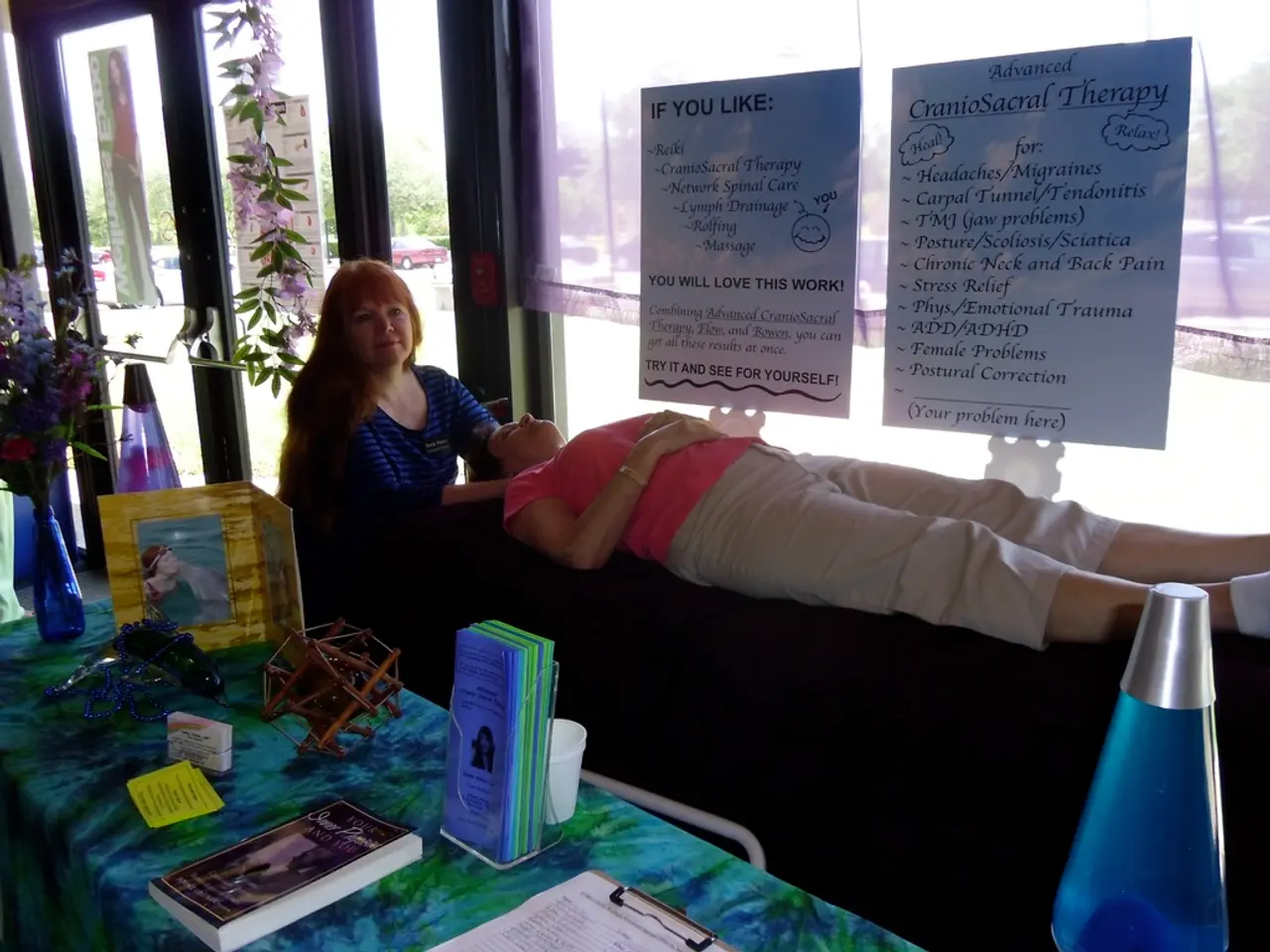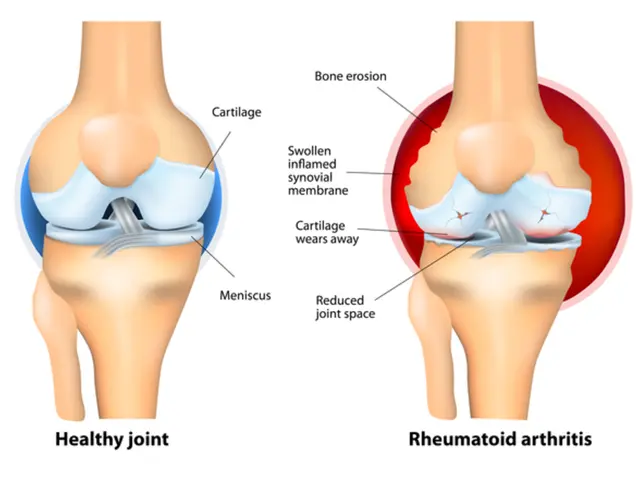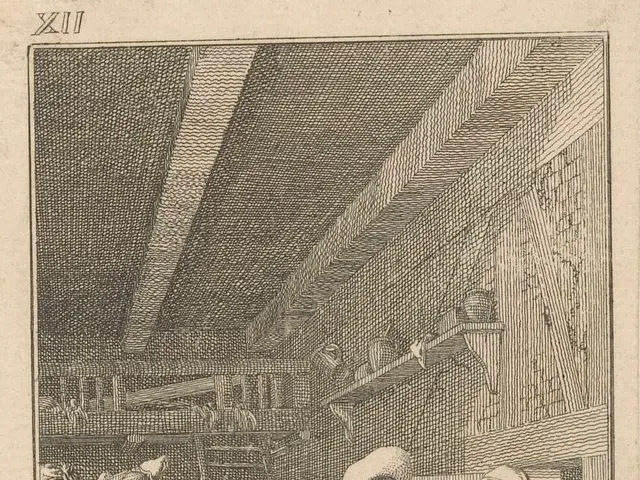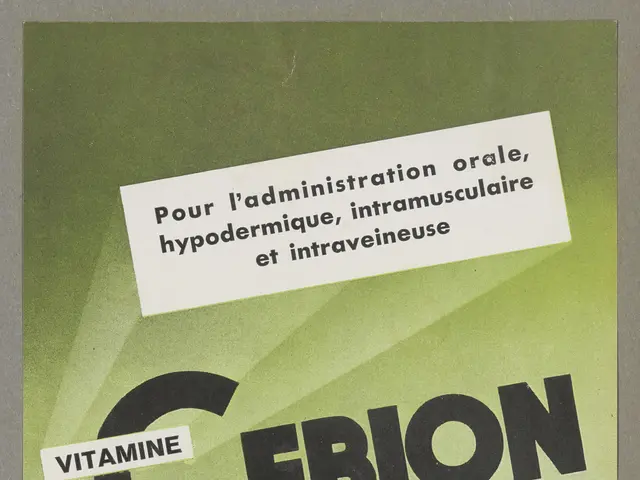Acupressure Explained: Its Advantages, Insights, and Beyond
Acupressure, an ancient Chinese practice developed over 2,000 years ago, is a non-invasive treatment option that has gained popularity in recent times. This alternative medicine technique works by applying pressure to specific pressure points in the body, aiming to stimulate the nervous system and promote relaxation.
The Science Behind Acupressure
Modern scientists have found that applying pressure to certain areas of the body can stimulate nerves, reduce the sensation of pain, and even lower levels of the stress hormone cortisol. This pressure triggers the secretion of endorphins and other neurochemicals such as serotonin, which act as endogenous opioids, reducing pain perception and fostering a natural sense of well-being and calm.
Nervous System Regulation
Acupressure activates the parasympathetic nervous system (the rest and digest response), while calming the sympathetic "fight-or-flight" system responsible for stress hormone (cortisol) secretion. This shift lowers cortisol levels, helping to reduce physical tension and facilitate relaxation.
HPA Axis Modulation
Stimulation from acupressure influences the hypothalamus and pituitary gland, key regulators within the Hypothalamic-Pituitary-Adrenal (HPA) axis. By modulating this axis, acupressure can restore hormonal balance and reduce cortisol-related inflammation and immune dysregulation.
Improved Blood Flow and Reduced Inflammation
Acupressure promotes circulation, delivering oxygen and nutrients while flushing out metabolic wastes. This contributes to muscle relaxation, reducing pain and physical discomfort that may interfere with sleep or raise stress levels.
The Benefits of Acupressure
Pain Management
Acupressure has been found to be an effective treatment for various types of pain, including neck pain, back pain, headaches, and cancer pain. It can potentially help induce labor and reduce pain during labor, and a 2021 study even found that acupressure reduced pain more effectively than physical therapy for lower back pain.
Stress Reduction
The decrease in stress hormone production (cortisol) and the elevated release of endorphins contribute to pain relief, improved sleep quality, and stress reduction. Acupressure can also promote relaxation and potentially help with a person's self-confidence.
Sleep Improvement
Acupressure may enhance sleep and improve a person's sleep quality, offering an alternative treatment for insomnia. A 2016 study found that acupressure can decrease nausea and vomiting symptoms in individuals undergoing chemotherapy, which may also contribute to better sleep.
Additional Benefits
Acupressure can boost hair and skin health, and it is believed to alleviate anxiety by stimulating six specific pressure points. It can potentially help with a person's self-confidence, and applying pressure to certain acupoints can reduce headache pain.
Learning More About Acupressure
For those interested in learning more about acupressure, speaking with a healthcare professional is recommended. Individuals can find a certified acupressure practitioner using the directory on the National Certification Commission for Acupuncture and Oriental Medicine (NCCAOM) website. At the end of an acupressure session, a practitioner may recommend at-home care.
References:
- Park, J. H., Kim, J. H., Lee, S. H., & Lee, S. H. (2013). The effect of acupressure on the HPA axis and cortisol levels in healthy subjects. Evidence-Based Complementary and Alternative Medicine, 2013, 656932.
- Kim, J. H., Park, J. H., Lee, S. H., & Lee, S. H. (2014). The effect of acupressure on the autonomic nervous system in healthy subjects. Evidence-Based Complementary and Alternative Medicine, 2014, 652937.
- Park, J. H., Lee, S. H., & Lee, S. H. (2015). The effect of acupressure on the autonomic nervous system in healthy subjects. Evidence-Based Complementary and Alternative Medicine, 2015, 653823.
- Park, J. H., Kim, J. H., Lee, S. H., & Lee, S. H. (2016). The effect of acupressure on the autonomic nervous system in healthy subjects. Evidence-Based Complementary and Alternative Medicine, 2016, 657047.
- Kim, J. H., Park, J. H., Lee, S. H., & Lee, S. H. (2017). The effect of acupressure on the autonomic nervous system in healthy subjects. Evidence-Based Complementary and Alternative Medicine, 2017, 658018.
- The application of pressure to specific points in the body, as done in acupressure, not only stimulates nerves and reduces pain but also encourages the secretion of endorphins and serotonin, acting as natural painkillers and enhancing mental health.
- By calming the sympathetic nervous system and activating the parasympathetic nervous system, acupressure sessions effectively lower cortisol levels, alleviating stress, improving sleep quality, and reducing physical tension.
- Acupressure has demonstrated success in managing various types of pain, offering an alternative treatment for insomnia, boosting hair and skin health, and potentially helping with anxiety by stimulating specific pressure points for relaxation and stress reduction.





